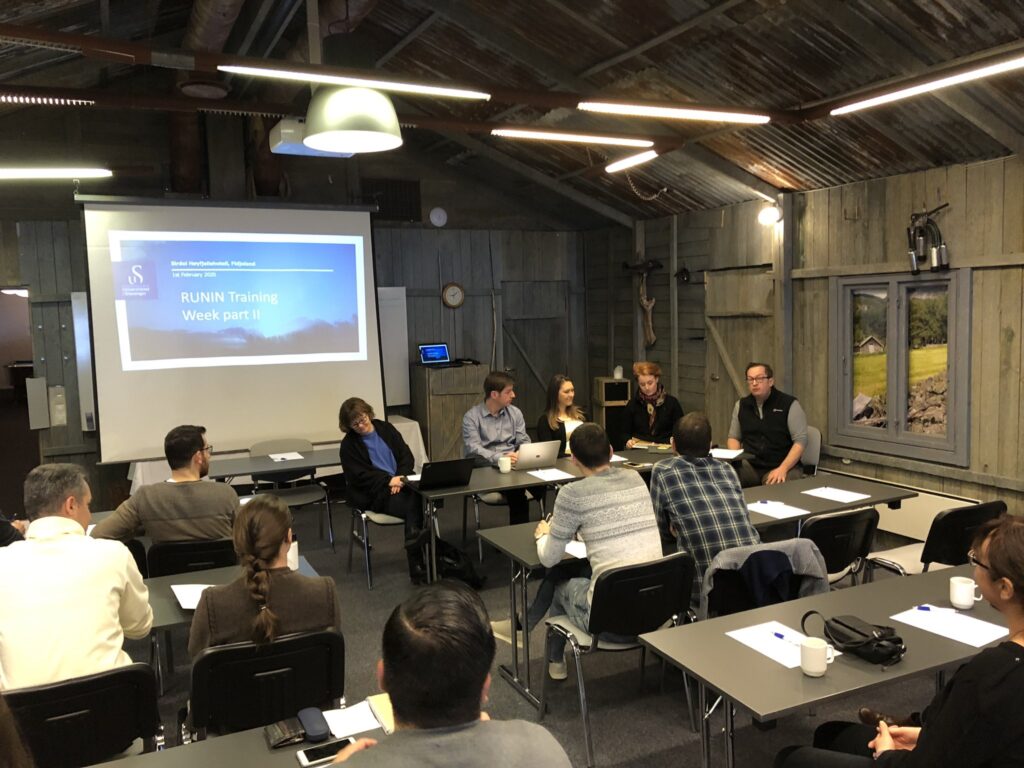
So the manuscript has been sent to the committee. The papers are published, the book is printed. The only thing that stands between you and the doctorate is the defence. Each country has its own ceremonies and ways of working. But in most European countries, the Ph.D. defence, oral examination or viva is seeking to test one criterion and one criterion alone, that the candidate is ready to be awarded the Ph.D.
The bachelor´s degree is an affirmation that you know some knowledge, and the master degree demonstrates that you know how to make the stuff, with the research dissertation. But the doctorate shows that you can create knowledge in ways that makes a scientific contribution, and the defence is a performance to allow you to do that.
But how? The thesis represents the knowledge you have produced. The viva examination is then your chance to use that knowledge to make a contribution in discussion with experts. It’s sometimes called a defence, and that can be misleading – you are not expected to defend to the death every single thing you’ve written.
What you are expected to do is to react to the challenges the opponents make in a thoughtful way, and in your response to advance the academic conversation, so we all know more about the subject than when we started. You might put your writing into content, reflect upon it, make its limitation more explicit, or look forward to its policy implications or other research questions it has raised.
It makes sense to try and practice and prepare the defence before you undertake one, to burnish the skills of talking about your knowledge produced in written form. Find some good colleagues to help you do that, and make sure that any mock defence is not just a harsh attack on you, but provides you with the space to reflect on your work.
At the final RUNIN workshop in Sirdal on 1st February, we assembled a panel of RUNIN members to give us their top tips on coping with a viva. We then organised a role-play exercise where students played candidate and examiner role. The session was very successful, and to try and assist other students, here are our panellists top tips!
Marte C.W. Solheim’s Top Defence Tips
The viva is an oral test where you have to be able to perform; this makes it different to the other kinds of tests you have done – where they are written and you have time to think and react.
There is a mise-en-scene that plays a role: so if you have the chance, visit the room where it will be held, look around and try to picture yourself in the defence itself, a bit like Usain Bolt does.
Think about who your opponents are and what they will be thinking about when they are reading the thesis. What are they working on now, and what kind of reactions does that suggest they will have to your thesis?
Wear comfortable clothes that look nice, so that you are not feeing constrained the whole time by ill fitting and uncomfortable clothes.
I would also recommend Professor Knud Knudsen’s top tips, which you can read here.
Elisa Thomas’ Top Defence Tips
Prepare your friends and family for the event and let them know what will happen, if they will be there in the audience and might be shocked by the formality and confrontation it involves.
Try to give yourself a chance to think about how you might deal with stage fright and other issues, so if it is a long defence, have someone prepped with sweets and drinks to keep your energy levels up.
You are the expert in the work, so you can afford to have a degree of confidence in your own expertise and an ownership of the work as something of value: exude that confidence.
In most defences, the candidates take a while to get started but then find their flow and then it becomes much better and much more enjoyable. Try to warm up beforehand and to react to the committee in ways that they are positive and constructive that helps you.
Tom Brökel’s Top Defence Tips
Come to it prepared; if you are allowed bring a notebook and try to write down bits of the question. Don’t be afraid to repeat, clarify or parse the question to get to something that you can say that is a constructive contribution.
Also remember that some of the work you will have done three years ago, so reread it and think about how your view might have changed on some of your early writing.
Sometimes an opponent may ask a question in an irritating or confrontational way to try and draw out an ill-considered response. So when you get the question, parse it and work out a response to it before you start the response “If I hear the question then what I think you are asking is …”
Always remember that you are the absolute expert on the topic, and the opponent will know less than you about the specifics; what they are trying to do is test you on its implications.
Remember that this is your moment, so organise things according to your needs. If you have family with a 2 year old baby, they and the baby can celebrate with you at your party, but they don’t have to be a disturbance in the room.
Ina Drejer’s Top Viva Tips
Visit someone else’s Ph.D. defence before yours if you get the chance, and try and work out what is happening and why it is happening.
Remember that this is the last time you will have the chance to have a discussion with someone that has read all your academic work, so be prepared for a discussion; make concessions and don’t defend everything to the hilt but move it forward.
There is no harm in taking a deep breath if there is a hard question; don’t panic and start spouting pre-prepared answers but you can take the time to think and plan a decent reply.
Think about the kinds of questions that you might get towards the end, things like what would you tell the Prime Minister or a Policy-Maker if you had a chance to tell them about your work.


